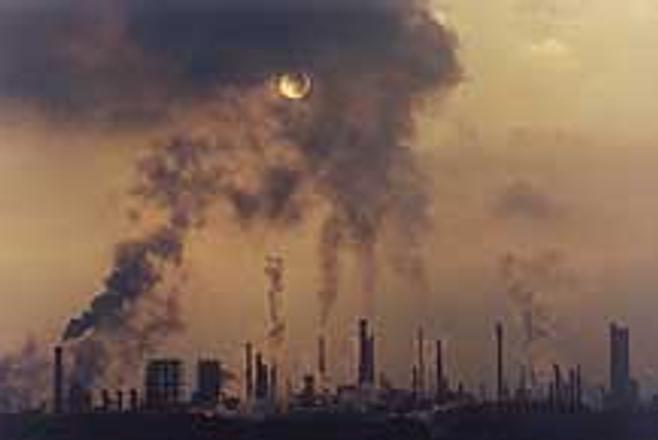The Slovnaft oil refinery in Bratislava. Company chiefs say they cannot sacrifice profit margins to cap prices.photo: TASR
Rocketing fuel prices in the past 13 months have forced many Slovaks to simply hang up their car keys rather than dig deeper into their pockets. The increases have also hit an already limp manufacturing sector dependent on oil. But hope has sprung anew for the ordinary citizen and Slovak industry chiefs, following an announcement that prices are to drop soon.
Despite the fact that the Bratislava-based Slovnaft refinery, which has a dominant position on the Slovak oil market, buys crude oil from Russia, the globally-dominant price strategy set by OPEC (Organisation of Petroleum Exporting Countries) and fixing the price of crude oil has pushed up prices to an all-time high of 34 crowns per litre for Super 95 Natural fuel.
According to Ján Tóth, an analyst with ING Barings, the high price of crude oil has increased production prices and squeezed the profit margins of Slovak companies which were forced to increase prices. "This has been negatively influencing purchasing power because people wonşt buy certain products as often as they used to purely because of their [increased] price," Tóth said.
Tóth added that manufacturing companies' costs had been growing faster than product prices, something borne out by the gap between PPI inflation and 6.5% core inflation.
In the first quarter of last year, following OPEC oil production reaching an all time maximum, the group drastically cut back on production and fuel prices began to grow. The price of Brent crude on the London Stock Exchange rose from $10 per barrel in February 1999 to more than $30 in July 2000.
Slovnaft has also felt the effects of the unsteady crown over the last 18 months, with its price decisions inexorably tied to the exchange rate of the Slovak crown to American dollar. The implementation of a second austerity package as well as the imposition of an import surcharge by the government caused an immediate currency deterioration, adding to the further increase. The price of the most frequently used petrol, Super 95 Natural, has risen by more than 11 crowns per litre since April last year to the current 34 crowns.
The crude oil price hike has also negatively influenced PPI inflation which in May this year stood at 11.6%. This, analysts said, had forced a negative performance of the manufacturing sector and influenced profits of producers, especially those with the bulk of product sales on domestic markets.
Despite the impact the fuel prices have had on the countryşs economy, Slovnaft spokesman Ľubom'r Žitňan said the refinery was unable to set prices lower and had only been reacting to the price of crude oil set by OPEC. He added that Slovnaft could not sacrifice its profit margins in order to keep the fuel price at a relatively stable level. "We are a market oriented company, we cannot lose money and thatşs why we have to react to every influence in the external market," Žitňan said.
However, Žitňan admitted that the recent decrease in the price of fuel had been influenced by the refinery's poor sales performance in the wake of the price hikes. Slovnaft has raised fuel prices 12 times and dropped them eight times already in 2000.
"When we were deciding about the latest decrease we took into consideration the changes in the countryşs economic situation, the phasing down of the import surcharge from 5% to 3%, and the falling purchasing power in the country," Žitňan said. Fuel sales in Slovakia have fallen over 25% in the last two years.
The final price of fuel includes an excise tax, which constitutes 53.35 % of the price, retailers' profit (8.06%) and the remainder being the profit taken by the refinery.
Despite the massive price increase, fuel in Slovakia remains cheaper than in neighbouring countries. In the Czech Republic, a litre of Super 95 natural costs the equivalent of 36.40 Slovak crowns, in Poland 35.90 crowns and Hungary 39.19 crowns. However, with the average wage in these countries outstripping that in Slovakia, the effect of the OPEC decisions has been less keenly felt.
Analysts are expecting the latest decrease to be the first in what should be a general fall in prices. Radom'r Jač, an analyst with Commerzbank Capital Markets in Prague, said the price of crude oil was unlikely to grow. "I think that the price will fluctuate in the coming days, but there is a tendency towards a decrease in the near future," Jač said.
However, car-owners are still wary of claims that any significant drop in price is on the cards, and say that a moderate fall will not help. Twenty-eight year-old Peter Sýkorčin, who has had his own car for five years, said that he is struggling with the high price of petrol. "If I use my car every week, that's 400 crowns [$9] per week on fuel, something I find hard to cover on my salary," he said.
The average Slovak monthly wage is a little over 10,000 crowns ($230).
Bratislava taxi-driver Marián said that the situation was so bad that he was losing more and more clients. "Now, with the money I earn, I can only buy fuel and some food. The rest has to be covered by my wife," he said.


